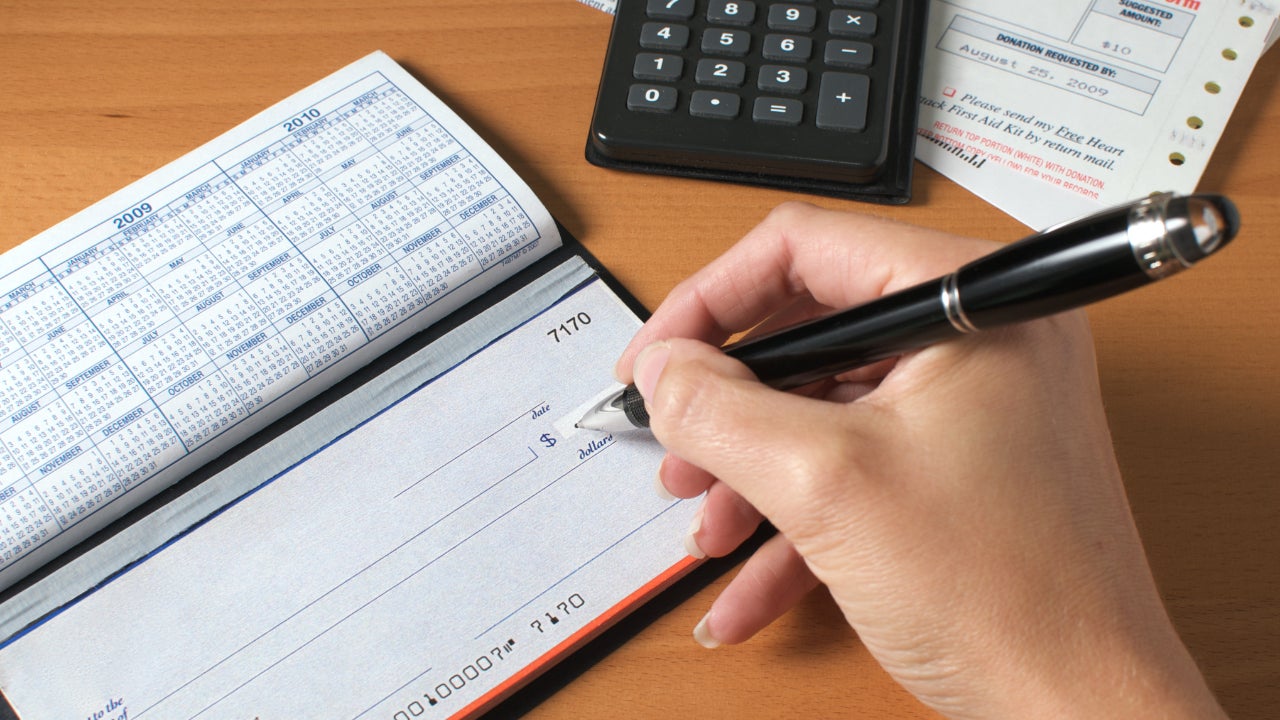What is a lien and how do you avoid one?

Key takeaways
- A lien serves as legal notice that you owe a creditor for an unpaid loan.
- Liens are not just associated with unpaid debt — they can result from defaulted property taxes, contractor claims against your home, unpaid HOA dues or judgments.
- Lenders typically use liens as a collection tool by attaching them to property, such as your home or car.
- Liens on your property can make it difficult to sell or refinance an asset like a home or car.
Creditors use liens as a legal tool to force repayment of debts. When you take out a secured loan, the lender adds a lien to your car or home and doesn’t release it until the lien is paid in full.
Government agencies, contractors, homeowners’ associations (HOAs) and condo associations may use liens to get you caught up on taxes, renovation bills or monthly dues. Understanding how liens work, how they can affect your financial present and future and how to resolve them is crucial to protecting equity in your assets and avoiding or reducing damage to your credit.
What is a lien?
A lien is a legal claim made by a lender or creditor against an asset — such as a home or vehicle — when a borrower owes money. It grants the creditor the right to sell the property to recover the unpaid debt after other collection efforts have been unsuccessful.
Liens can tank your credit score, make it difficult to sell property and could even lead to loss of property if unresolved. Liens can either be voluntary or involuntary.
Voluntary liens are part of most standard loans. Involuntary liens cause the most potential damage to your credit history and put you at risk of losing assets if you can’t negotiate some type of agreement.
Voluntary vs. involuntary liens
Liens can either be voluntary or involuntary. An example of a voluntary lien is when you take out a mortgage to buy a home. You allow the lender to attach the lien to your home in exchange for receiving the loan funds to purchase it. It continues to be a voluntary lien as long as you make the payments you agreed to.
An involuntary lien happens when you don’t hold up your end of the agreement to repay a debt. The small print in the paperwork you sign for a loan includes details about the lender’s right to collect the money you owe if you don’t repay it, and a lien is usually the last resort after all other efforts have failed.
Other examples of involuntary liens include those imposed by state or federal tax agencies if you fail to pay property or income taxes. Your homeowner’s association typically has the right to put a lien on your home if you’re seriously delinquent on HOA dues.
Why involuntary liens create major financial problems
Involuntary liens can wreak all kinds of financial havoc on your life. If you’re at the point where a lien is necessary, your credit score has probably already dropped significantly. However, an involuntary lien may keep you from selling or obtaining assets in the future.
Liens can be recorded against your home, vehicles and even business assets in some cases. Once they become public record, they can’t be removed until you pay them off.
If you have a lien on a home you’re trying to sell, it must be paid before you receive any money from the sale. Buyers might avoid buying a home with a lien because of the extra time it could take to have the lien released as part of the sale.
This is particularly true for tax liens, where the government has significant power to enforce payment, sometimes even seizing the property. Understanding your rights and promptly dealing with these liens is essential to prevent more severe consequences such as foreclosure or lawsuits.
Types of liens
Liens come in a variety of forms. Here are some of the most common types of liens that may be placed on your property.
Voluntary liens
A voluntary lien is one that both parties agree on. For example, when you borrow money to buy a home, you sign a note and deed of trust and a lot of related paperwork.
The lien attaches your home as collateral the lender can seize if you fail to repay the loan. It’s voluntary because you allow it to be secured by your home in order to receive the loan funds.
Judgment liens
A judgment lien arises after a court rules in favor of a creditor, usually following multiple notices to a borrower giving them the opportunity to settle unpaid debts. The court gives the creditor the right to claim the debtor’s property to satisfy the judgment. Judgment liens can also be obtained in court for both secured and unsecured loans.
Bankrate’s take: You may not qualify for a mortgage if you have an outstanding judgment lien of any type. That’s primarily because lenders don’t want to take the risk that the lien could be attached to any asset you own, regardless of whether it happened before you or after you purchased the home.
Tax liens
The government places a tax lien on a property when the owner fails to pay income, property or state taxes. Although the government has the right to seize property as a result of unpaid taxes, it’s relatively rare.
Bankrate’s take: One major benefit of having a mortgage escrow account is that your lender pays a portion of your property taxes every month, so enough builds up to pay the bill when it comes due.
Mechanic’s liens
If contractors aren’t paid for the services they provide, they can place a mechanic’s lien on the property until payment is made. This can happen during home improvement projects if a dispute arises between you and a contractor over how work is or isn’t being completed.
One warning: You could end up with a half-finished renovation project until the mechanic’s lien is paid. Make sure you keep paperwork if you do resolve one — you won’t be able to sell your home if you can’t provide proof of the release.
HOA or condo liens
If a homeowner fails to pay homeowners’ association or condominium fees, the HOA can place a lien on their property. These liens can prevent homeowners from selling their property until the debt is settled, but don’t put the home at risk of foreclosure.
How creditors collect on a lien
Once a lien is recorded against you or your property, the collection process depends on the type of defaulted loan. When you default on your mortgage, the voluntary lien becomes involuntary, and the lender can enforce its rights by foreclosing on or selling the property.
However, lenders have to follow very strict timelines for foreclosure, which includes a variety of opportunities for you to negotiate some type of payment arrangement. You will receive multiple written notices of the intent to collect the debts, with suggestions to settle or make payment arrangements. Be sure to read the notices so you know important timelines, such as court dates.
The power of the government to collect on liens
Government agencies have more power than private institutions to collect on past-due debts like taxes. The IRS may seize assets, including homes, and even garnish your wages. These same collection actions may apply to student loan defaults, so make sure you stay on top of written communications if you’re behind or unable to make payments.
All government debt collectors are required to give you plenty of notice in writing, and offer many opportunities to negotiate payment arrangements or balance reductions if you are proactive in your communications.
What happens to your home equity if there is a lien on your home?
One of the first things lenders look for when you apply for something like a home equity loan or line of credit is active liens against your home. In the event your home is sold in a foreclosure, these liens may take priority over a new home equity loan, which is why lenders won’t approve a new loan unless the lien is paid off and released.
That makes it difficult to borrow against your home equity or to refinance. Involuntary liens reduce the amount you earn when selling your property, and you can’t hide a lien from someone trying to buy your home, or you’ll be committing fraud.
How to remove a lien from your property
To remove a lien, the most straightforward approach is to pay off the debt in full. After the debt is settled, the lienholder should notify local authorities to release the lien.
If paying the full debt isn’t feasible, some options include:
- Negotiating with the lienholder for a payment plan or reduced settlement.
- Borrowing money to pay off the lien — although this can be challenging if the lien has hurt your credit.
Sometimes a lien placed on your property may be invalid. For example, many homeowners who opted for solar panels weren’t aware that the solar companies added liens for the installation of leased equipment. When they tried to sell or refinance their homes, they had to chase down the solar company representatives to get releases.
If you run into undisclosed liens, consult your state laws to determine the legal process for disputing them. You typically need to send a demand letter to the person filing the lien listing why it is invalid and ask them to remove it. If they refuse to remove the lien, it may be time to file a lawsuit.
Most homeowners buy title insurance when they purchase or refinance a home. Buyers are typically protected by an owner’s title policy, paid for by the seller, which guards against claims, such as liens, that could arise from the prior owner’s actions. Title insurance is required if you buy a home financed by a mortgage, and is worth it since the title company will litigate any unexpected claims with their own resources.
Bottom line
Liens are a standard tool lenders use to ensure they get repaid for money you borrow from them. Voluntary liens are a normal part of using financing to buy an expensive asset. Involuntary liens are preventable if you work on a repayment plan with the lender before the lien process begins.
If you’re unable to pay a lien, you can seek bankruptcy protection. If you include a secured lien in a bankruptcy, you’ll have to give up the asset when the bankruptcy is finalized. A Chapter 13 may reduce the lien balances or give you an affordable payment plan.
Most government liens can’t be discharged in a bankruptcy, but getting rid of other debt may give you enough space in your budget to repay the government creditors.
Frequently asked questions
Why we ask for feedback Your feedback helps us improve our content and services. It takes less than a minute to complete.
Your responses are anonymous and will only be used for improving our website.







